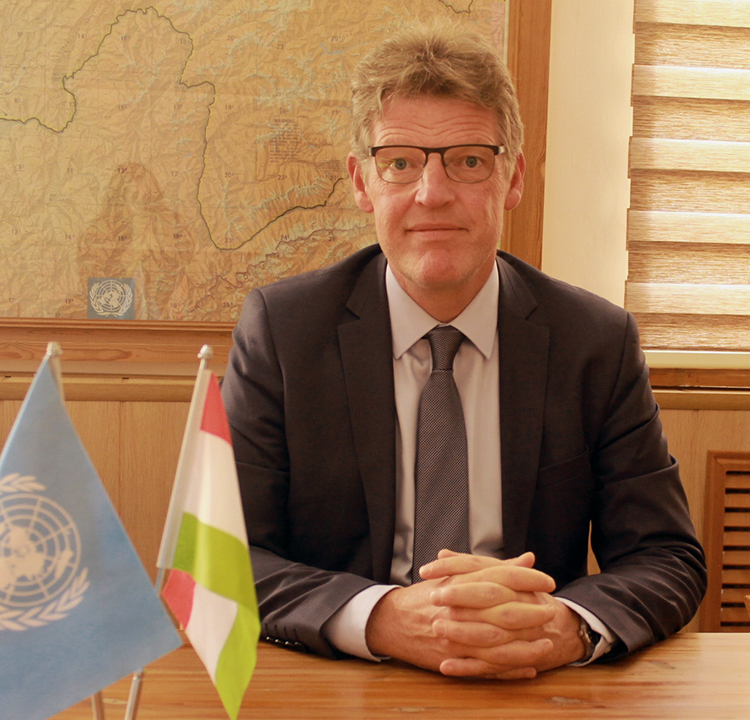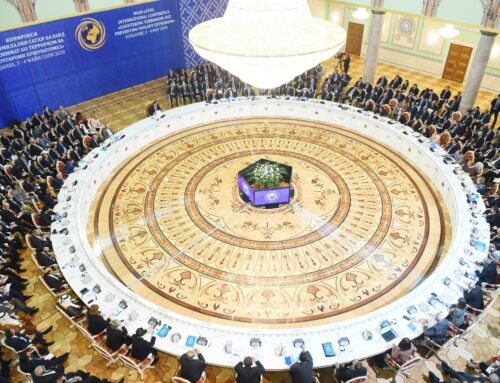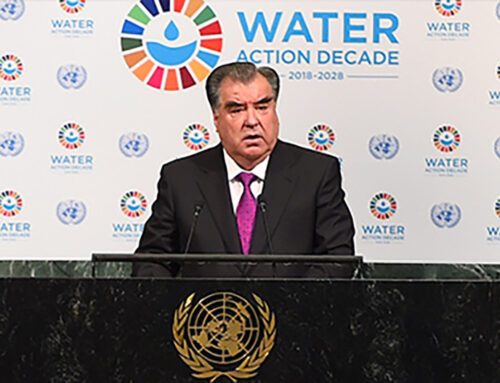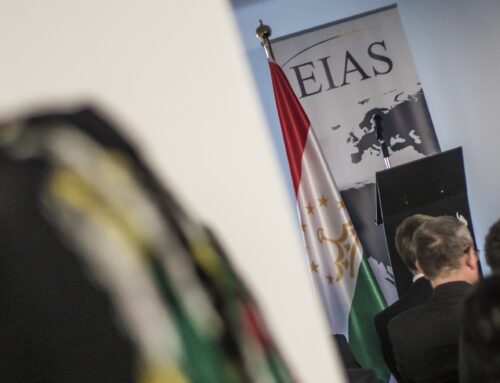
Working in tandem with the UN’s peacekeeping mission as Tajikistan’s development partner at the turn of the millennium, the United Nations Development Programme (UNDP) has become one of the major supporters of the country’s transition process into a stable and rapidly developing economy. Pointing out that UNDP’s interventions in Tajikistan are helping to enhance the country’s progress towards meeting its development agenda of sustainable and equitable growth, Jan Harfst, UNDP Country Director and UN Resident Coordinator ad interim, discusses the organization’s activities and projects.
European Times: What are UNDP’s major activities in the country?
Jan Harfst: UNDP’s program represents a broad spectrum of activities and plays an active role in harmonizing the efforts of all UN agencies. Our joint activities are regulated by the United Nations Development Assistance Framework (UNDAF) and consist of four pillars: poverty reduction and governance; food and nutrition security; access to clean water, sustainable environment and energy; and improving quality basic services, which includes battling diseases such as HIV/AIDS, TB and malaria.
The Annual Work Plan which UNDP signs with Tajikistan’s government provides around US$30 million each year for the planned activities. In addition to the overall economic development, we focus on disaster risk deduction, enhancement of the rule of law and access to justice programs, environmental protection and energy security and efficiency.
Furthermore, UNDP provides support for the National Development Strategy and we aid the private sector development and enhancement of trade. Providing both financial and technical assistance, UNDP strives to enhance good governance as well as social and economic growth in order to reduce poverty, unlock human potential, protect rights and improve core public functions.
European Times: Which governmental and international institutions are UNDP’s major partners in Tajikistan?
Jan Harfst: With Tajikistan’s government as our most important partner, UNDP also works with a wide range of institutions and organizations, including other UN agencies, civil society, academia, media, international financial institutions, bilateral agencies, the private sector and others. Our main counterpart in the government is the Ministry of Economic Development and Trade, and we also work closely with the State Committee for Emergency Situations, the Ministry of Justice, the Ministry of Heath and the Ministry of Environment.
In terms of bilateral agencies, we have excellent cooperation with the Swiss Agency for Development and Cooperation Office, the Government of Finland, as well as the Government of Japan.
European Times: What is your projection for the next five years?
Jan Harfst: In five years, we definitely hope that the government will be able to push through the envisioned reforms, particularly those aimed at enhancing the development of the private sector, such as the reforms dedicated to ensuring a better business environment, better legal systems and legal protection and eradicating corruption. Furthermore, in the following period Tajikistan should also focus on becoming energy independent. With a hardworking workforce, excellent potential and provided that the right policies are in place, the country could become a real success story.




